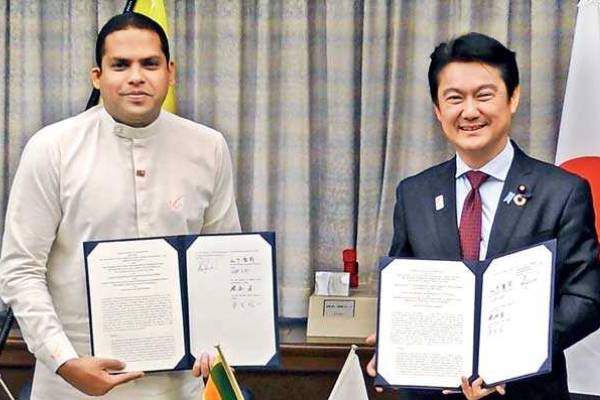Sri Lankan labour in 14 different job categories will have access to employment in the Japanese market, with Foreign Employment Ministry to put in stringent controls to eliminate malpractices.
The job opportunities opening up for Sri Lankans following the signing of a Memorandum of Understanding (MoU) yesterday between two countries will require skills levels specified by the Japanese authorities.
“We will not allow just any job agency to recruit for these jobs, those agencies will be vetted by the Foreign Employment Bureau, and the skills development will be done through vocational training institutions,” Telecommunication, Foreign Employment and Sports Minister Harin Fernando told the Daily FT.
The agreement also includes upgrading the vocation system in the country to Japanese competencies standards with levels N4 and N5 courses being offered for hopeful job seekers. The program will also give a guarantee employment in japan for a 10-year period, Fernando said, while giving competent workers the flexibility to shift to the professional categories as well. The Minister also hopes official endorsement of skilled workers to Japan will indirectly encourage youth towards vocational training.
“We expect to send up to about 1,000 fully skilled people this year alone. We already have about 600 trainees in our institutions at present, so we are confident we will be able to send about 1,000-1,500 workers by the end of the year,” the Minister said. Sri Lanka is the seventh country out of nine selected to sign such an agreement with Japan, where employment in number of tech-intensive areas such as Industrial Machinery Industry, Electric, Electronic and Information Industry, Construction Industry, Ship Building and Ship Machinery Industry, Automobile and Repair Maintenance and Aviation Industry will open up to Sri Lankans.
Further Sri Lanka will also have access to skilled job categories in Caregiving, Cleaning, Hotel Industry, Agriculture, Fishery and Aquaculture Manufacture of Food and Beverages, and Food Service Industry through the new agreement.
(FT)

